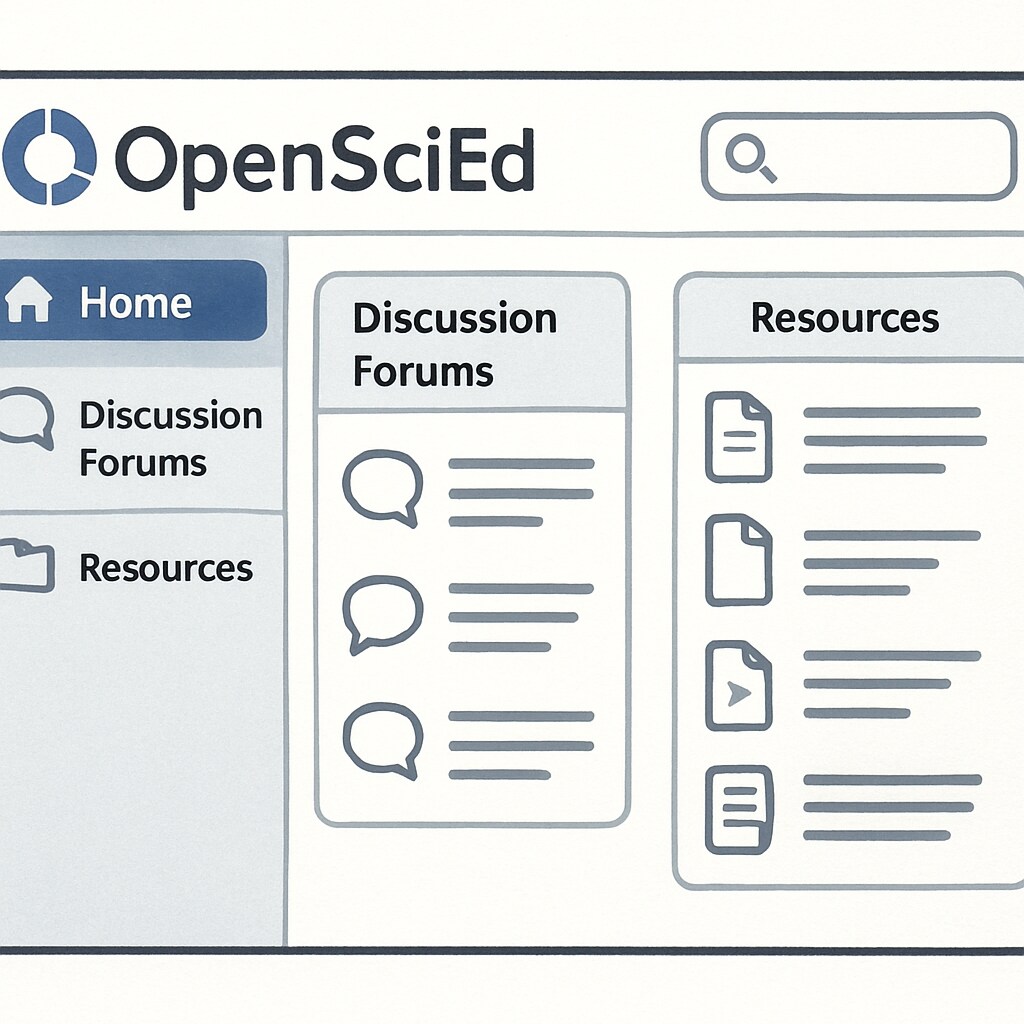In the ever-evolving landscape of education, the OpenSciEd community stands out as a transformative platform for modern teaching. Dedicated to middle school science education, OpenSciEd offers educators a collaborative space to share experiences, address challenges, and innovate together. By fostering meaningful connections, this initiative aims to reshape how science is taught, making it more engaging, relevant, and impactful for students around the globe.

The Value of OpenSciEd for Science Educators
For educators, teaching science goes beyond delivering content—it’s about inspiring curiosity and critical thinking. OpenSciEd recognizes this and provides a rich repository of resources tailored to the needs of middle school teachers. The platform includes ready-to-use lesson plans, classroom strategies, and tools aligned with the Next Generation Science Standards (NGSS). These resources not only save time but also ensure that lessons are both rigorous and student-centered.
Moreover, OpenSciEd prioritizes inclusivity. Its curriculum emphasizes equitable teaching practices, ensuring that students from diverse backgrounds can access high-quality science education. This commitment to equity sets a new standard, encouraging educators to create classrooms where every student feels valued and capable of success.
Collaborating and Problem-Solving in the OpenSciEd Community
One of the most significant benefits of OpenSciEd is its vibrant community. Teachers often face unique challenges, from managing diverse learning styles to integrating technology effectively. The OpenSciEd platform serves as a hub where educators can pose questions, share solutions, and collaborate on innovative approaches.
For example, an educator struggling with a specific lesson can seek advice from peers who have successfully navigated similar situations. This collaborative spirit not only enhances individual teaching practices but also contributes to the collective growth of the teaching profession. It’s a space where both novice and experienced teachers can learn from each other, fostering a culture of continuous improvement.

Driving Innovation in Middle School Science Education
OpenSciEd isn’t just about sharing resources; it’s about driving innovation. By bringing together passionate educators, the platform sparks conversations that lead to groundbreaking ideas. For instance, educators can collaborate on interdisciplinary projects that connect science with other subjects like math, technology, and engineering, creating a holistic STEM learning experience for students.
Additionally, OpenSciEd supports professional development by offering workshops and webinars. These events equip teachers with cutting-edge strategies and insights, ensuring that they stay ahead of educational trends. As a result, students benefit from an enriched learning environment that prepares them for the challenges of the 21st century.
How to Join and Make the Most of OpenSciEd
Getting started with OpenSciEd is simple. Educators can visit the official OpenSciEd website to access resources, join forums, and participate in events. The platform is designed to be user-friendly, making it easy for teachers to find what they need and contribute to the community.
To maximize the benefits, educators should actively engage in discussions, share their own experiences, and explore the wealth of materials available. By doing so, they not only enhance their own teaching but also help shape the future of science education for others.
In conclusion, OpenSciEd is more than just a resource—it’s a movement to transform middle school science education. By joining this community, educators gain the tools and support they need to inspire the next generation of scientists, engineers, and innovators. Together, we can make science education more dynamic, inclusive, and impactful than ever before.
Readability guidance: The article uses concise paragraphs, clear headings, and transitional phrases to ensure readability. Lists and examples are included to summarize key points effectively. The text avoids jargon, making it accessible to a wide audience of educators.


